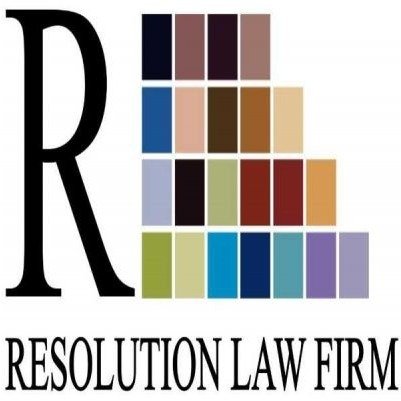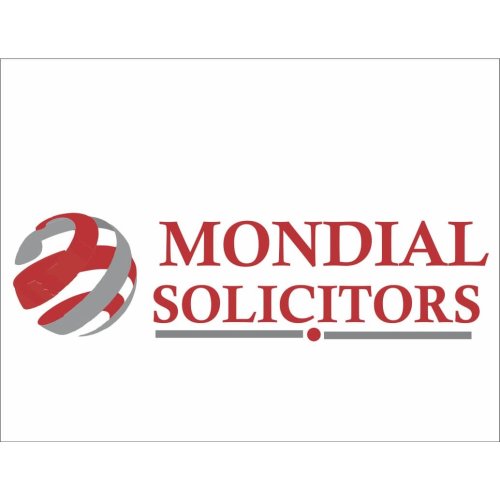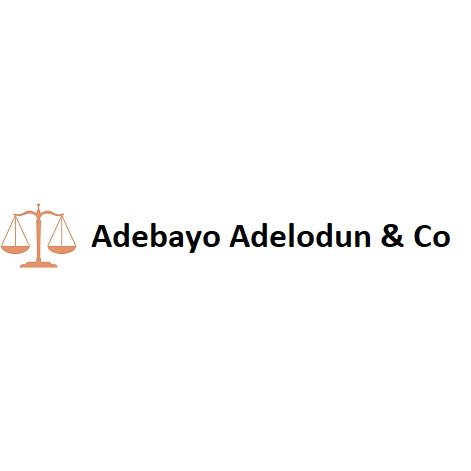Best Business Lawyers in Nigeria
Share your needs with us, get contacted by law firms.
Free. Takes 2 min.
Or refine your search by selecting a city:
List of the best lawyers in Nigeria
Legal guides written by Adeola Oyinlade & Co:
- Procedure and Requirements for Work Permit and Visas in Nigeria
- The Step-By-Step Procedure of How to Apply for Microfinance Bank License Online in Nigeria
- How to Ensure the Smooth Recognition and Enforcement of Foreign Judgments in Nigeria
Nigeria Business Legal Questions answered by Lawyers
Browse our 5 legal questions about Business in Nigeria and read the lawyer answers, or ask your own questions for free.
- As a foreigner in private employ, is it unlawful to equally run my private business on the side?
- I hold a top management position in a multinational company but under immigration law, I am told it's unlawful to equally run my private company which is not the same business as where I work
-
Lawyer answer by Tents & Towers-Barristers and Solicitors
Your ability to run a business while in private employment as a foreigner depends on some factors, one of which is your contract of employment with your current employer. We would like to look at that contract together with the...
Read full answer - Timeline, Requirements, and Costs for Company Registration with the CAC
- How long will it take to get my company registered with the CAC, and what are the necessary requirements and costs?
-
Lawyer answer by GAVEL & GREY LEGAL PRACTITIONERS
The duration takes between 7-28 days. And as for requirement, it varies depending on the type of company you seek to register. the fees is usually determined by the share capital you seek to register your company with. for more...
Read full answer - I want to start upa disatch rider company i. Enugu. Courier a d logistics. Company
- What are the necessary law requirement and licensing to set up a dispatch rider business within Rnugu State
-
Lawyer answer by Highlaw Chambers
To establish a dispatch rider business in Enugu State, several key legal requirements must be met. Firstly, you need to register your business with the Corporate Affairs Commission (CAC) and obtain a Business Name Registration. Additionally, you will need to...
Read full answer
Nigeria Business Legal Articles
Browse our 6 legal articles about Business in Nigeria written by expert lawyers.
- The Step-By-Step Procedure of How to Apply for Microfinance Bank License Online in Nigeria
- The Central Bank of Nigeria (CBN) has launched a new online platform for submitting microfinance bank (MFB) license applications, known as the CBN Licensing, Approval, and Other Requests Portal. The new online platform replaces the previous laborious approach of physically submitting MFB license applications to the CBN. These are the... Read more →
- How to Ensure the Smooth Recognition and Enforcement of Foreign Judgments in Nigeria
- Recognition and enforcement of foreign judgments refer to the legal process of acknowledging and enforcing court decisions made in a different country. This aspect of the legal system is essential for maintaining the integrity of international law and ensuring justice is upheld across borders.When it comes to the enforcement of... Read more →
- The Use of Drones for Commercial Purposes and Privacy Rights of Others
- In the field of innovative technology, drones are used in different spheres of human activities. Drones can be used to handle complex jobs, offer security, conduct surveillance, and collect information. However, the employment of drones can pose challenges from the point of standpoint of human rights and privacy, which raises... Read more →
About Business Law in Nigeria
Nigeria is regarded as one of Africa's largest emerging economies, characterized by a diverse economic structure contributing to growth. Business laws in Nigeria regulate the formation, operation, and dissolution of businesses and encompass sectors such as corporate governance, taxation, intellectual property, and employment laws. The legal framework aims to create an enabling environment that fosters entrepreneurship, attracts investments, and promotes fair competition. With a population exceeding 200 million, Nigeria offers vast opportunities but also presents challenges requiring a solid understanding of its legal infrastructure to navigate effectively.
Why You May Need a Lawyer
Engaging a lawyer in business matters in Nigeria can be crucial in several scenarios:
- Business Formation: To ensure compliance with regulatory requirements when starting a business.
- Contractual Agreements: To draft and review contracts to safeguard interests and minimize liabilities.
- Intellectual Property Protection: To secure trademarks, copyrights, and patents.
- Dispute Resolution: To manage conflicts through negotiation, arbitration, or litigation.
- Regulatory Compliance: To keep up with evolving laws and regulations affecting business operations.
Local Laws Overview
Nigerian business law is governed primarily by the Companies and Allied Matters Act (CAMA) and the Investment and Securities Act, among others. Key aspects include:
- Company Registration and Corporate Structure: Detailed processes for the registration of companies and their management.
- Taxation: Businesses must comply with federal and state tax regulations, including corporate income tax, value-added tax (VAT), and personal income tax for employees.
- Labour Laws: Governed by the Nigerian Labour Act, which outlines employment terms and conditions.
- Consumer Protection: Enforced by the Consumer Protection Council to safeguard consumer rights.
- Investment Laws: Provide guidelines on foreign direct investment (FDI) to encourage economic growth.
Frequently Asked Questions
What are the types of business ownership in Nigeria?
The main types are sole proprietorships, partnerships, private and public limited liability companies, and incorporated trustees.
What is required to register a business in Nigeria?
Registration with the Corporate Affairs Commission (CAC) is necessary, including submitting a memorandum and articles of association, among other documents.
Is there a specific law governing foreign investments in Nigeria?
Yes, the Nigerian Investment Promotion Commission (NIPC) Act guides foreign investments, providing incentives and conditions.
How can intellectual property be protected in Nigeria?
Through registration with relevant authorities for trademarks, patents, and copyrights, providing legal recognition and protection.
Are there specific regulations for employing expatriates?
Yes, companies must obtain an Expatriate Quota from the Ministry of Interior and work permits for expatriate employees.
What is the role of the Nigerian Stock Exchange (NSE)?
It facilitates capital formation by providing a platform for companies to raise funds and for investors to buy and sell securities.
What legal recourses are available for contract disputes?
Parties can resolve disputes through negotiation, arbitration, or litigation in courts if agreed upon in the contract.
Do businesses need to pay annual fees or additional taxes?
Besides corporate taxes, businesses may pay other fees such as business premises fees, signage fees, and annual filing with the CAC.
How essential is a business lawyer in drafting a contract?
Very essential, as a lawyer ensures the contract's enforceability and protection of interests while identifying possible legal risks.
What penalties exist for failing to comply with business laws?
Penalties might include fines, imprisonment for responsible individuals, and suspension or revocation of business licenses.
Additional Resources
Here are some resources and organizations related to business in Nigeria that can offer valuable assistance and information:
- The Corporate Affairs Commission (CAC) - for business registration and regulatory compliance information.
- The Nigerian Investment Promotion Commission (NIPC) - for insights on investment opportunities and regulations.
- The Federal Inland Revenue Service (FIRS) - for tax-related guidance.
- Nigerian Bar Association (NBA) - to find qualified business lawyers.
- The Nigerian Stock Exchange (NSE) - for investment and securities market guidance.
Next Steps
If you need legal assistance in business-related matters in Nigeria, consider the following steps:
- Research: Educate yourself on the basic aspects of business law relevant to your needs.
- Consult with Professionals: Get recommendations for experienced business lawyers who specialize in your area of interest.
- Prepare Documentation: Gather all necessary documentation and contracts that pertain to your business queries or issues.
- Schedule Consultations: Set up meetings with legal professionals to discuss your situation and obtain advice.
- Review Recommendations: Review the legal advice and solutions proposed, and proceed with implementing necessary legal strategies.
Taking these steps will help ensure that you receive the necessary guidance to navigate the complexities of business law in Nigeria effectively.
Lawzana helps you find the best lawyers and law firms in Nigeria through a curated and pre-screened list of qualified legal professionals. Our platform offers rankings and detailed profiles of attorneys and law firms, allowing you to compare based on practice areas, including Business, experience, and client feedback.
Each profile includes a description of the firm's areas of practice, client reviews, team members and partners, year of establishment, spoken languages, office locations, contact information, social media presence, and any published articles or resources. Most firms on our platform speak English and are experienced in both local and international legal matters.
Get a quote from top-rated law firms in Nigeria — quickly, securely, and without unnecessary hassle.
Disclaimer:
The information provided on this page is for general informational purposes only and does not constitute legal advice. While we strive to ensure the accuracy and relevance of the content, legal information may change over time, and interpretations of the law can vary. You should always consult with a qualified legal professional for advice specific to your situation.
We disclaim all liability for actions taken or not taken based on the content of this page. If you believe any information is incorrect or outdated, please contact us, and we will review and update it where appropriate.
Browse business law firms by service in Nigeria
Nigeria Attorneys in related practice areas.
Browse business law firms by city in Nigeria
Refine your search by selecting a city.

















